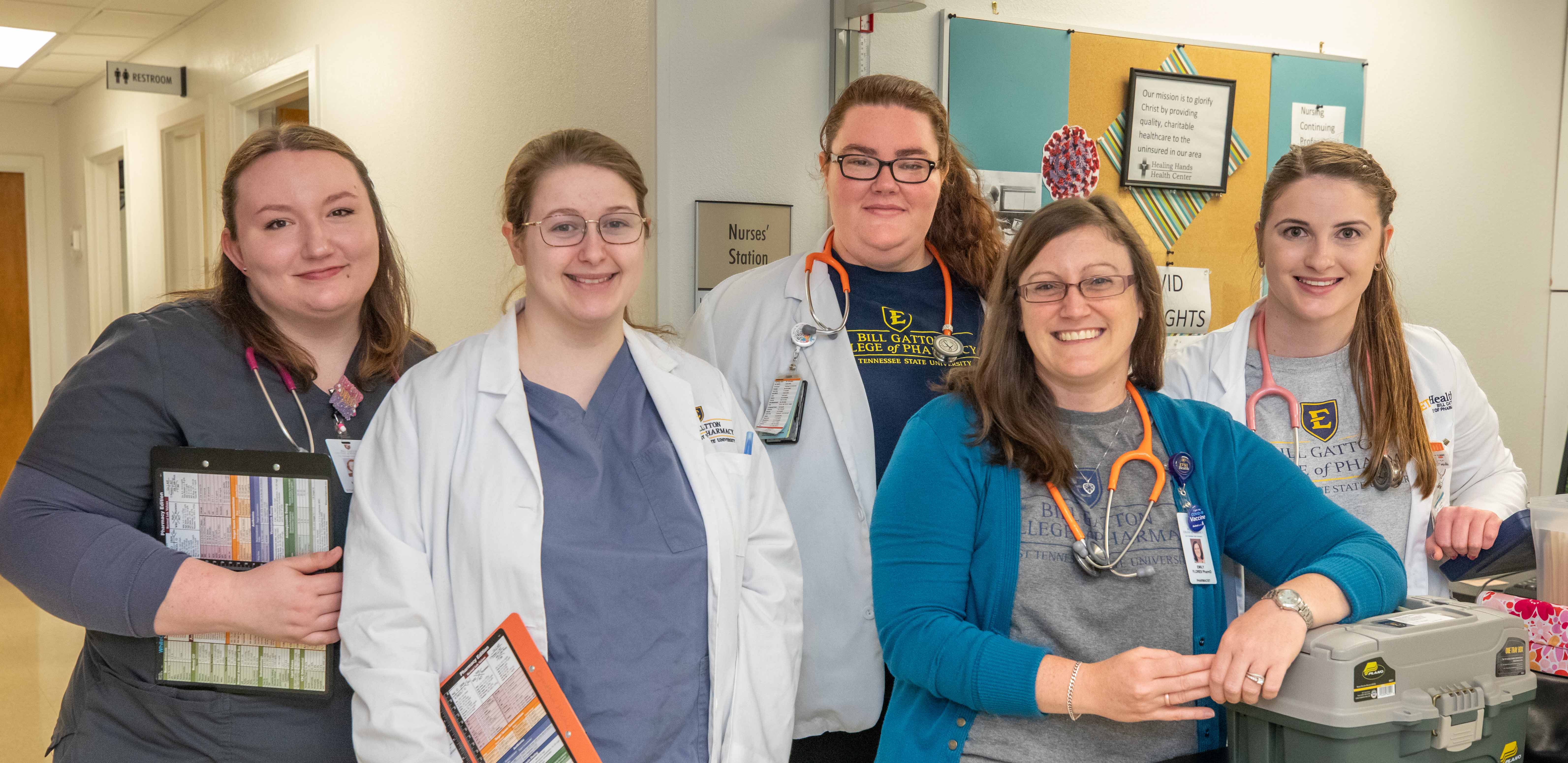Rural & Underserved Pharmacy Care Track
 Impact our community
Impact our community
Leverage your passion for patients from rural and underserved populations—the heart of ETSU Gatton College of Pharmacy’s mission. This 9-hour track will help you develop knowledge, skills, and abilities to positively impact outcomes for health disparities that exist in our region. Set yourself apart by completing the Rural and Underserved Pharmacy Care Track.
 Eligibility
Eligibility
Required: All student years are eligible.
 Application
Application
Required: Apply here.
 Requirements
Requirements
Complete 2 electives, 2 experiential placements, and a capstone experience for a total of 9 credit hours.
Timeline
-
Two Didactic Elements (minimum of 3 credit hours)
Required: Rural/Underserved Pharmacy Care introductory elective (1 hour during P1, P2 or P3 year)
Additional elective(s): Approved electives with rural/underserved focus (minimum 2 hours during P2 and/or P3 year)
-
Two Experiential Elements (minimum of 6 credit hours)
Complete two Experiential placements at rural/underserved sites
May be IPPE Immersion (2 hours each) and/ or APPE experiences at designated sites (4 hours each)
-
One Research/Service Element
Rural/Underserved Pharmacy Care Capstone (P3 or P4 year)
Announcement
JOHNSON CITY, Tenn. (Sept. 11, 2024)—East Tennessee State University Bill Gatton College of Pharmacy has created a new academic track for student pharmacists to focus specifically on impacting health care in rural and underserved communities.
The new Rural and Underserved Pharmacy Care Track is embedded within the four-year
PharmD curriculum and provides opportunities for student pharmacists to develop the
knowledge and skills necessary to practice in communities with limited resources and
health care disparities. The new track ties into the heart of ETSU Gatton College
of Pharmacy’s mission, which is to develop transformative, collaborative pharmacists
who improve health care focusing on rural and underserved communities.
Beyond classroom requirements, the Rural and Underserved Pharmacy Care Track will
primarily send students out into the community with two placements at rural and underserved
rotation sites. There is also a research or service component required later in the
student’s third or fourth year.
“I’m excited to see our student pharmacists leverage their passion for our rural and
underserved patient populations and make a difference in the community,” said Dr.
Emily Flores, Associate Professor of Pharmacy Practice, who spearheaded the program
and leads many of the college’s service efforts. “While the track is new, the college’s
history of serving rural and underserved communities goes back to the first years
of its founding. Our students have served thousands of hours in rural communities
over the years, and I expect that to only increase as we launch this track.”
Background on Service
Since 2009, before the college graduated its first class, faculty and student pharmacists
became involved in drug take back efforts across the region to reduce unused, expired,
and unwanted medications on the streets–and also decrease substance misuse. Starting
in 2010, the college became involved in free medical care events like Remote Area
Medical, Church Hill Medical Mission and later with ETSU Street Medicine.
In 2011, the American Pharmacists Association-Academy of Student Pharmacists (APhA-ASP)
Generation Rx (now Operation Substance Use Disorder) committee was formed at the college
and has become the nation's leading substance use disorder patient care committee
as recognized by APhA-ASP. In 2024, the committee reached a milestone: the 11th consecutive
year that it has been recognized either regionally or nationally.
In 2022, these service opportunities and more culminated in the college earning a
top national award for service to the community, the American Association of Colleges
of Pharmacy (AACP) Lawrence C. Weaver Transformative Community Service Award. This
honor is presented annually to one college or school of pharmacy across the United
States demonstrating a major institutional commitment to addressing unmet community
needs through education, practice and research.
 Sam Wilson West Parking Lot C...
Sam Wilson West Parking Lot C...